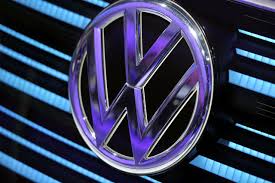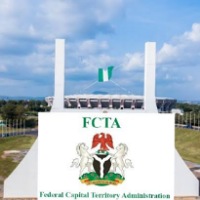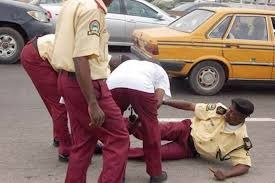Motoring
Volkswagen, Anhui Jianghuai in talks to build electric cars

LAGOS-GERMAN auto giant Volkswagen and China’s Anhui Jianghuai Automobile are in talks to build electric cars together, the firms announced Wednesday, the latest possible tie-up in a burgeoning Chinese market for clean-energy vehicles.
Volkswagen said the two carmakers had signed a memorandum of understanding at its Wolfsburg headquarters to explore the possibility of a joint venture focussed on the research and development, manufacturing and sales of “new energy vehicles”.
In its own statement, Anhui Jianghuai Automobile (JAC) said it expected to sign an official agreement with Volkswagen within five months.
JAC chairman An Jin said the firm was looking forward to “a full-scale cooperation” with Volkswagen “to provide Chinese consumers with highly cost-effective battery electric vehicle products”.
 There were no immediate details about the scope of the planned agreement.
There were no immediate details about the scope of the planned agreement.
The mooted deal comes as Beijing is seeking to develop its nascent but growing electric car industry with incentives and other government support in a bid to boost the country’s environmental credentials and tackle crippling air pollution.
Some 247,000 “zero emissions cars” were sold in China last year, quadruple the number in 2014, according to the China Association of Automobile Manufacturers.
Under Chinese law, foreign companies must enter into joint ventures with domestic firms to produce vehicles in what is now the world’s largest auto market.
China’s leading electric car manufacturer BYD has already teamed up with Germany’s Daimler, while French carmaker PSA Peugeot Citroen said earlier this year it would develop electric cars with Chinese partner Dongfeng Motors from 2019.
JAC, based in Hefei in east China’s Anhui province, is a state-owned car, truck and bus maker with sales outlets across China.
It aims to bring the production and sales of new energy cars to more than 30 percent of the total by 2025, according to its website.
Like many global automakers, Volkswagen is revving up its focus on green energy vehicles with plans to launch more than 30 all-electric models within the next decade.
Those efforts have become all the more urgent in the wake of Volkswagen‘s “dieselgate” emissions cheating scandal, which has hurt the firm’s sales and cast a spotlight on the harmful effects of polluting engines.
AFP
Motoring
FCTA Pulls Plugs On Taxi Rank, Terminal Services Contracts

The Federal Capital Territory Administration (FCTA) has ended contracts with taxi rank and terminal operators due to their failure to meet engagement terms and conditions.
Mr. Ubokutom Nyah, the Mandate Secretary of the Transportation Secretariat, FCTA, made this announcement during a meeting with managers of these terminals and taxi ranks in Abuja.
Nyah clarified that due to the operators’ failure to fulfill their engagement terms, the FCTA had to terminate their contracts.
He instructed them to transfer control of the ranks to the Administration within three months, starting from Nov. 21.
He lamented the presence of unauthorized motor parks in the city and assured the readiness of the Administration to establish proper taxi ranks and terminals in the capital.
He revealed that personally visiting the city’s taxi ranks, terminals, and unauthorized motor parks gave him direct insight into the poor condition of these facilities.
He emphasized that as the federal capital city, Abuja deserves better, highlighting that the poor condition of these facilities attracts various criminal elements.
He said “We must rid Abuja of all these. I have gone round the taxi ranks, and of all the places I visited, not one is worthy to be called even a village motor park.”
The Mandate Secretary stressed that the intention wasn’t punitive; rather, it aimed to revamp the sector, introduce new engagement terms, and modernize taxi ranks and terminals in the federal capital.
He also highlighted the plan to increase the number of terminals and ranks where necessary, which would positively impact the administration’s revenue.
He emphasized that this measure was part of a broader effort to eliminate illegal motor parks in Abuja and curb the associated criminal activities.
In response, Mr. Adebisi Lawal, the Operator of Jahi Taxi Rank, praised the administration’s initiative to modernize the taxi ranks and terminals.
Lawal urged the administration to prioritize current operators’ involvement in the selection of new developers for the modernization of the taxi ranks and terminals.
Motoring
Power Show Sees Soldiers Batter LASTMA Officer

It was a show of power at the Ojota area of Lagos on Monday as soldiers pummeled an officer of the Lagos State Traffic Management Authority, (LASTMA).
Eyewitness accounts claim that the ugly scene played out around 8am, and saw about eight soldiers pounce on the yet to identified LASTMA official, while his colleagues took to their heels.
The video of the melodrama has gone viral, where the LASTMA official was appealing to the soldiers, who appeared bent on ‘teaching him a lesson’.
This onslaught comes on the back of a reported assault of a soldier at the same location by LASTMA officials last week.
It would appear that what played out today was the army asserting its authority and defending their khaki as the armed soldiers carried out what looked like a revenge mission.
Eyewitnesses further averred that the victim was rushed to a nearby hospital, after the soldiers left the scene.
It was gathered that the authorities at LASTMA has reported the incident to the military authorities who are said to be looking into the matter.
Meanwhile many members of the public are rejoicing that the soldiers have taught the crude LASTMA official that power is stronger than power, for all their atrocities against motorists on Lagos roads.
Motoring
Intra-City Fares Skyrocket By 98% Month-On-Month – NBS
The impact of the removal of subsidy on Premium Motor Spirit (PMS), otherwise known as petrol, has seen the pump prices of the product skyrocket with a corresponding increase in the cost commercial transportation in Nigeria.
According to the National Bureau of Statistics (NBS), intra-city bus transportation fares across Nigerian cities, measured between May and June 2023, increased from N649.59 to N1,285.41 in June 2023.
This translates to 98 percent growth or N635.82 within the month in view.
The NBS made the data available in its Transport Fare Watch report for June 2023.
In the report, the NBS also shared the breakdown of bus journeys within the cities per drop for constant routes; bus journey intercity (state route); charges per person, amongst others.
On a year-on-year basis, the report has it that bus fares rose by 120.63 percent from N582.61 paid by commuters in June 2022.
The average fare paid by commuters for bus journey intercity per drop rose to N5,686.49 in June 2023 compared to N4,002.16 in May 2023 indicating an increase of 42.09 percent, month-on-month.
The report read, “The average fare paid by commuters for bus journeys within the city per drop increased by 97.88 per cent from N649.59 in May 2023 to N1,285.41 in June 2023.
On a year-on-year basis, it rose by 120.63 per cent from N582.61 in June 2022.
“In another category, the average fare paid by commuters for bus journey intercity per drop rose to N5,686.49 in June 2023, indicating an increase of 42.09 on a month-on-month basis compared to N4,002.16 in May 2023.
“On a year-on-year basis, the fare rose by 55.25 per cent from N3,662.87 in June 2022.”
Biztellers reported that the twin forces of forex pressure and increasing price of Brent in the global market would likely see the pump prices of petrol, increased again in no distant time in Nigeria.













